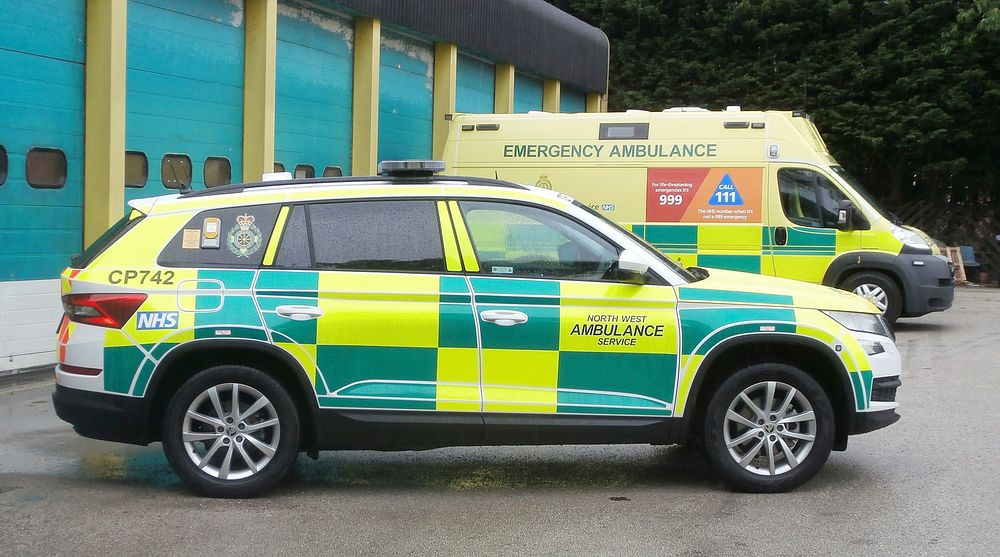
New Skoda Kodiaq More: OLYMPUS DIGITAL CAMERA. Original public domain image from <a href="https://www.flickr.com/photos/136359789@N02/48023594731/" target="_blank" rel="noopener noreferrer nofollow">Flickr</a>
When faced with immediate medical needs that require prompt attention but are not life-threatening emergencies, urgent care facilities, sometimes called after-hours clinics, provide a key solution. These centers bridge the gap between primary care providers and emergency rooms, offering convenient and accessible care options. Let’s explore the benefits of after-hours clinics, their role in addressing medical needs, and their limitations in medical emergencies.
What Is Urgent Care?
Urgent care facilities are medical centers that provide immediate attention for non-emergency conditions. These facilities handle issues such as minor injuries, illnesses like the flu, infections, allergic reactions, and other similar concerns. Unlike emergency rooms, after-hours clinics are designed for cases where prompt medical care is necessary, but the condition does not pose an immediate risk to life or health.
A key feature of after-hours clinic is their accessibility. Many offer extended hours, allowing patients to seek care after work hours or on weekends. They operate on a walk-in basis, meaning appointments are not required. This can be helpful for those needing care on short notice.
The triage process at these centers is fundamental in determining the urgency of a patient’s condition. Medical personnel assess symptoms to prioritize care appropriately, ensuring patients with more pressing conditions are seen sooner.
Why Should One Choose Urgent Care Facilities for Immediate Care Needs?
Urgent care facilities are a helpful alternative to traditional healthcare options for certain conditions, providing numerous benefits.
- Cost-Effective Care
Compared to emergency rooms, after-hours clinics typically offer more affordable services. For minor injuries or illnesses, seeking treatment at an after-hours clinic can significantly reduce medical expenses for patients.
- Shorter Wait Times
One of the key advantages of after-hours clinics is their relatively shorter wait times. Patients are often seen more quickly than they would be at an emergency room, where critical cases take precedence.
- Convenience and Accessibility
Many urgent care centers are located in easily accessible areas, and their extended operating hours make them an attractive option for individuals with busy schedules. Whether during the evening or on a weekend, these facilities act as a reliable option outside regular clinic hours.
- Transparency in Wait Times
Some after-hours clinics provide wait time transparency, allowing patients to know how long they might have to wait before their visit. This helps them make informed decisions about when to seek treatment.
Do After-Hours Clinics Attend to Medical Emergencies?
While after-hours clinics are ideal for many medical needs, they are not equipped to handle severe or life-threatening emergencies. Medical conditions such as chest pain, severe head injuries, difficulty breathing, or significant bleeding require immediate attention from emergency rooms or specialized medical facilities.
Patients contemplating whether to visit an after-hours clinic or an emergency room should factor in the severity of their conditions. For instance, a sprained ankle or a minor burn can be treated effectively at an after-hours clinic. On the other hand, symptoms indicative of a stroke or heart attack necessitate a visit to the emergency room.
It is also key for patients to recognize the limits of services provided at after-hours clinics. While they offer diagnostic tests, diagnostic imaging, and minor treatments, they may not have the capabilities for advanced imaging, surgical procedures, or specialized interventions.
Want To Learn More About Urgent Care?
After-hours clinics are a key component of modern healthcare, offering cost-effective, accessible, and convenient solutions for non-emergency medical needs. With shorter wait times and extended hours, they cater to individuals seeking prompt medical attention for minor conditions. For further questions and assistance about urgent care, reach out to trusted professionals or explore trusted resources for more insights.



